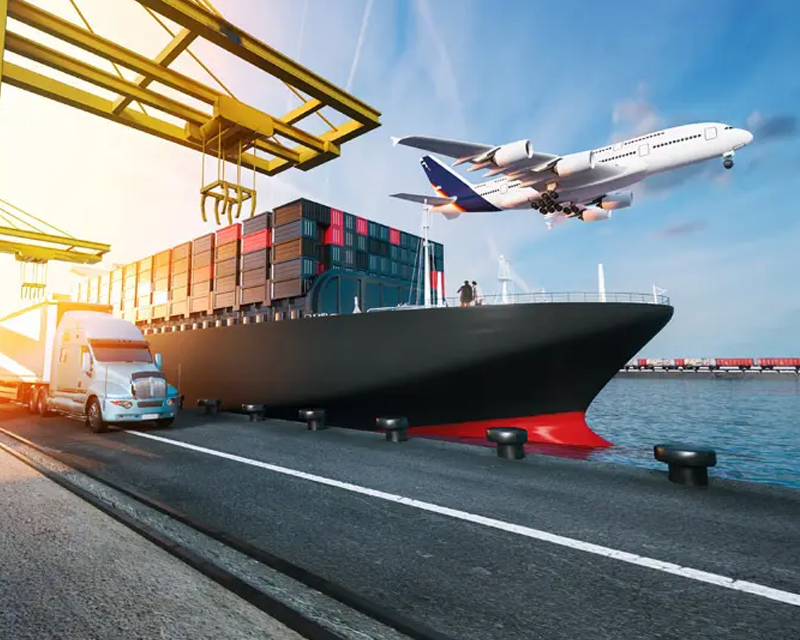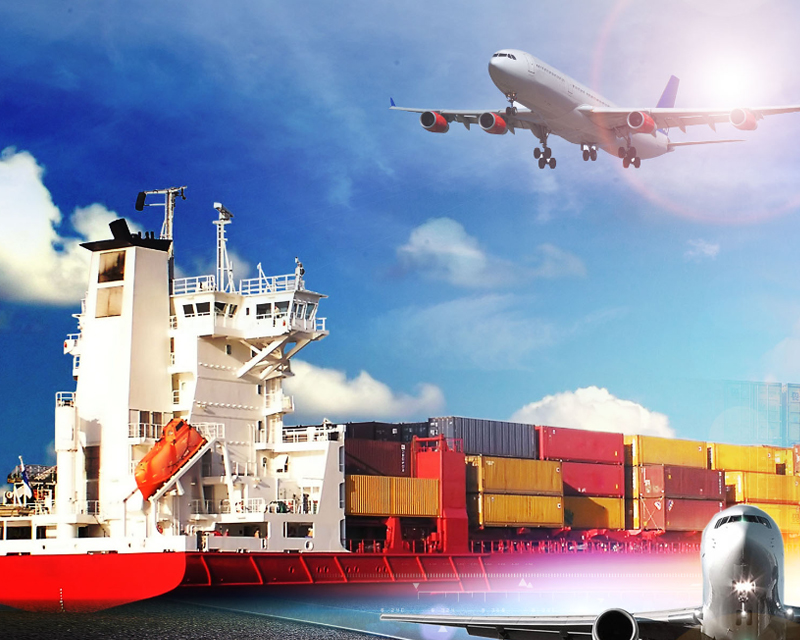What is an international freight forwarder?
International freight forwarder, abbreviated as "international freight forwarder".
It refers to the industry in which international freight forwarding organizations accept the commission of the consignee and shipper of import and export goods, handle international cargo transportation and related businesses for the principal or in their own name, and receive labor remuneration.
Transportation method
1. Water transportation agency
Refers to international freight forwarders who provide transportation services and related services for goods on water supply. It can be specifically divided into two types: sea freight agency and river freight agency.
2. Air freight agent
Refers to international freight forwarders who provide air cargo transportation and related services.
3. Land transportation agency
Refers to freight forwarders who provide goods transportation services and related services such as road, railway, and pipeline transportation.
4. Intermodal agent
Refers to international freight forwarders who provide goods transportation services and related services such as road, railway, and pipeline transportation. This type of agency can be further divided into sea air intermodal agency, sea rail intermodal agency, air rail intermodal agency, and other types.
Business scope
From the perspective of the basic nature of international freight forwarders, freight forwarders mainly accept the entrustment of the principal to handle matters related to the transportation, transshipment, warehousing, loading and unloading of goods. On the one hand, it enters into a transportation contract with the shipper of the goods, while also signing a contract with the transportation department. For the shipper of the goods, he is also the carrier of the goods. A considerable number of freight agents have control over various means of transportation and warehouses for storing goods, and handle the transportation of goods, including sea, land, and air, during their business operations. The main businesses engaged by international freight forwarders include:
1、 Serving the shipper
The freight forwarder replaces the shipper to undertake any procedures in the transportation of different goods:
1. Arrange suitable cargo packaging and choose the transportation route for the goods using the fastest and most economical transportation method.
2. Advise customers on warehousing and distribution.
3. Select a reliable and efficient carrier and be responsible for concluding a transportation contract.
4. Arrange the weighing and measurement of goods.
5. Apply for cargo insurance.
6. Assembly of goods.
7. Store the goods in the warehouse before shipment or before distributing them at the destination.
8. Arrange the transportation of goods to the port, handle customs and relevant documents procedures, and hand over the goods to the carrier.
9. Represent the shipper/importer to bear the freight, customs duties and taxes.
10. Handle any foreign exchange transactions related to the transportation of goods.
11. Obtain various signed bills of lading from the carrier and hand them over to the shipper.
12. By contacting the carrier and freight forwarder's agent abroad, supervise the transportation process of the goods and make the shipper aware of the destination of the goods.
2、 Serving customs
When a freight forwarder acts as a customs agent to handle customs procedures related to import and export goods, it not only represents its customers, but also represents the customs authorities. In fact, in many countries, he has obtained permission from these authorities to handle customs procedures and is responsible to the customs. He is responsible for declaring the exact amount, quantity, and name of the goods in the documents issued earlier, so that the government does not suffer losses in these aspects.
3、 Serving the carrier
The freight forwarder shall promptly book the shipping space with the carrier, negotiate fair and reasonable fees for both the shipper and the carrier, arrange for appropriate delivery time, and resolve issues with the carrier's freight account in the name of the shipper.
4、 Serving Airlines
Freight forwarders act as agents for airlines in the air transportation industry. In the rules formulated by the International Air Transport Association for the purpose of air freight, it is designated as the agent of the International Air Transport Association. In this relationship, it utilizes the freight methods of the airline to serve the cargo owner and is paid a commission by the airline. Meanwhile, as a freight forwarder, it continues to serve the shipper or consignee by providing services that are suitable for air transportation.
5、 Serving liner companies
The relationship between freight forwarders and liner companies varies depending on the business. The LCL services provided by freight forwarders, namely the consolidation of LCL cargo, have established close connections with liner companies and other carriers (such as railways). However, some countries refuse to pay commissions to freight forwarders, so they are striving for commission requirements worldwide.
6、 Provide LCL service
With the growth of container transportation in international trade, the introduction of container transportation and LCL services has led to freight forwarders playing the role of principals in providing such services. The basic meaning of consolidation and LCL is to gather small pieces of goods from several shippers at one shipping location to several receivers at another destination, and send them as a whole shipment to the freight forwarder at the destination, and through it, deliver the single shipment of goods to each consignee. The freight forwarder issues a bill of lading, which is to divide the bill of lading or other similar receipts and deliver them to the shipper of each shipment; The agent of the destination port of the freight forwarder shall deliver the original bill of lading to the consignee. The consignee and shipper of LCL do not directly contact the carrier. For the carrier, the freight forwarder is the shipper, while the freight forwarder's agent at the destination port is the consignee. Therefore, the carrier issues a full process bill of lading or waybill to the freight forwarder. If the shipper or consignee has special requirements, the freight forwarder can also engage in pick-up and delivery services at the shipping and destination locations, providing door-to-door services.
7、 Multimodal transport services
In terms of freight forwarding, a more profound impact of containerization is its involvement in multimodal transportation, where it serves as the main carrier and undertakes to organize door-to-door cargo transportation through multiple modes of transportation under a single contract. It can negotiate and sign separate contracts with other carriers or service providers as a party. However, these allocation contracts will not affect the execution of the multimodal transport contract, that is to say, they will not affect the shipper's obligations and their liability for damage and loss of goods during the multimodal transport process.











 Links
Links